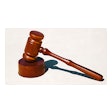All Rights Reserved
Copyright 2018 The Arizona Daily Star Oct 7, 2018
Arizona Daily Star (Tucson)
Arizona's annual media day is typically a time of optimism, promotion and laughter within the program.
There was some of that, to be sure, when the Wildcats held their 2018-19 version last Monday. But just as UA coach Sean Miller walked into the McKale Center interview room to talk about his team, the ESPN.com home page was carrying a story: "Collateral damage likely as NCAA hoops trial opens."
A photo of a troubled-looking Miller ran next to it.
Miller was asked how he felt that looked. He was asked if the Wildcats still have a cloud over them, a year after assistant coach Book Richardson was arrested on federal bribery and fraud charges as part of the federal investigation into college basketball.
He was asked how much attention he was paying to the first of three resulting trials that opened last week — the trial that eventually brought up allegations that Arizona offered $150,000 and $50,000 to separate recruits, allegations that could bring the Wildcats sanctions if they are later proven true in the NCAA's enforcement process.
With little expression, Miller declined to comment on all those questions, referring to his statement a year earlier that he was committed to compliance.
Adidas executive James Gatto, former Adidas rep Merl Code and would-be sports agent Christian Dawkins are all currently on trial in Lower Manhattan. Richardson's day in court won't happen until April.
But even so, Arizona and many other schools have already been pulled into the courtroom conversation. Defense attorneys argue their clients broke NCAA rules — but not federal laws — as they tried to keep up with basketball powerhouses.
"One thing that has evolved as a common theme is the notion that while payments to players or their families may have been made, those actions do not constitute the federal crimes with which the defendants have been charged," said Stu Brown, an Atlanta-based attorney who has worked with schools on NCAA infractions cases.
The government's argument is tied in part to Pell Grants and other forms of aid the federal government gives schools across the United States. The government argues it is a stakeholder in the schools, and thus hurt when schools are the victims of fraud when they receive players who are ineligible because they or their families have accepted payment.
The NCAA is lurking, with sanctions possible at numerous schools if the courtroom allegations translate into proven NCAA violations.
"We are closely monitoring the trial of three individuals charged with corruption in college basketball," the NCAA said in a statement issued Friday. "If information relevant to potential NCAA violations is uncovered, we will continue to follow-up and investigate all the facts."
Arizona faces no sanctions yet, but two allegations have surfaced out of the current trial that could lead to an inquiry: That Arizona offered $50,000 to five-star recruit Brian Bowen through then-associate head coach Joe Pasternack, and that the UA was prepared to pay $150,000 for another five-star player, Nassir Little.
Bowen's father, Brian Bowen Sr., said Dawkins told him about the alleged offer from UA, as well as offers from other colleges, during testimony Thursday. He is expected to be cross-examined when the trial resumes Tuesday.
Arizona's alleged $150,000 offer for Little was included in the 2017 federal complaint. Code told Gatto of the UA's alleged offer, the complaint said, and suggested Adidas needed to match it so that Little could attend Miami, an Adidas school. (Little now plays for North Carolina.)
The September 2017 federal complaint also alleged that Richardson accepted $20,000 in bribes to help lure five-star guard Jahvon Quinerly to Arizona, that Dawkins said a player on the 2017-18 team had accepted money, and that Dawkins said he regularly attended UA practices "like I'm on the team."
Having an agent attend a practice isn't against NCAA rules. However, if an agent's access to the team leads to improper actions, it could be considered a failure to monitor issue. (In response to a public records request from the Star, UA said it has no records of attendees at the normally closed practices.)
In addition, the complaint alleged that Dawkins' partner, financial advisor Munish Sood, met with two UA coaches in Las Vegas during the 2017 Pac-12 Tournament, and that he exchanged two telephone calls with a cellphone number known to be "an individual who was then an assistant coach for the men's basketball team" at Arizona. Pasternack was the only UA staffer to leave after the 2016-17 season. He's now the head coach at UC Santa Barbara.
Miller has not been directly linked to any potential NCAA violations in the complaint or in the trial so far, but was the subject of a February ESPN report that said he discussed a pay-for-play scheme.
Miller sat out one game and four additional days while UA officials discussed the report, and the coach issued a vehement public denial upon his March 1 return.
Miller could still face significant penalties, however, if any of the allegations that have surfaced so far translate into NCAA violations. NCAA Bylaw 11.1.1.1 eliminates plausible deniability for head coaches, putting under a guilty-until-proven-innocent standard.
Head coaches are held responsible for their staffers' actions under the bylaw, unless they can rebut the presumption of responsibility by proving they have fostered an atmosphere of compliance and actively monitored their direct and indirect reports.
"They're making sure the coaches are engaged, so they can't turn a blind eye to it," Christian Dennie, a Texas-based attorney who specializes in working with schools on NCAA issues, told the Star in 2017. "If they can make sure the coach is doing the right thing, they'll probably be OK."
A resolution could take months or even years.
The NCAA issued a rule change in August saying that its enforcement staff "can accept information established by another administrative body, including a court of law, government agency, accrediting body or a commission authorized by a school." And Brown says the NCAA has instructed schools to start looking at some of the issues that have arisen from the federal investigation and trial.
"My sense is they will wait for these trials to conclude," Brown said, "because that allows the NCAA to gather information through both what becomes public in the trial and whatever else the federal government might share with them after the trials, which is unknown."
Arizona athletic director Dave Heeke said he isn't sure if the NCAA will wait until all the federal trials are concluded to act, but said he thought it will want to use as "many resources as are available" in determining whether violations have occurred.
"I think the NCAA has been waiting and certainly has had communication with a number of universities around the country," Heeke said, "so that as this continues to progress, they'd want to be moving forward as fast as they can."
Read More of Today's AB Headlines
Subscribe to Our Daily E-Newsletter
Terms and Conditions Privacy Policy































